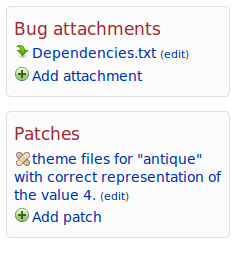Private Projects and Private Blueprints leave beta
Tuesday, December 4th, 2012Today, the Private Projects and Private Blueprints features on Launchpad are leaving beta. These features are available now for use by all Launchpad users. Private Blueprints was started as part of the Private Projects work, with the end goal in mind of truly private projects on Launchpad. Private Projects was described in its beta announcement like this:
When creating a new project on Launchpad, beta testers will have the option to create “Proprietary” or “Embargoed” projects. Embargoed exists for projects that intend to start private but later be revealed publicly. All other private projects should be proprietary. Milestones and series are proprietary or embargoed based on the project setting. To make them public, you will need to make the project itself public.
When you create a proprietary or embargoed project on Launchpad, all of the sharing policies for your project will be set correctly for you. This means that if you start your project as a proprietary project, your branches, bugs, and blueprints will be created proprietary by default. Answers and translations are not available for private projects.
A commercial subscription is required to use private projects, but any user who creates a proprietary or embargoed project on Launchpad will receive a 30 day trial commercial subscription. Launchpad users with existing commercial subscriptions can convert a public project to proprietary or embargoed by changing the information type in the project’s settings. You may have some work to do on your project before you can transition to a private information type — for example, disable answers if you have that app enabled for your project — but Launchpad will block the change and tell you what needs to happen before you can switch to a private information type.
Users should be aware, though, that if your project has been listed on Launchpad publicly until now, then search engines know of its existence already. If you want a proprietary project that no one can learn of its name, you should create a new project on Launchpad. Transitioning a public project to private allows you to keep your series and milestones private going forward, but users may have already been able to discover the existence of the project since it was public already.
We are happy to make truly private projects available for all users on Launchpad. If you run into any issues, please file a bug against Launchpad or ask for help in #launchpad on Freenode.




